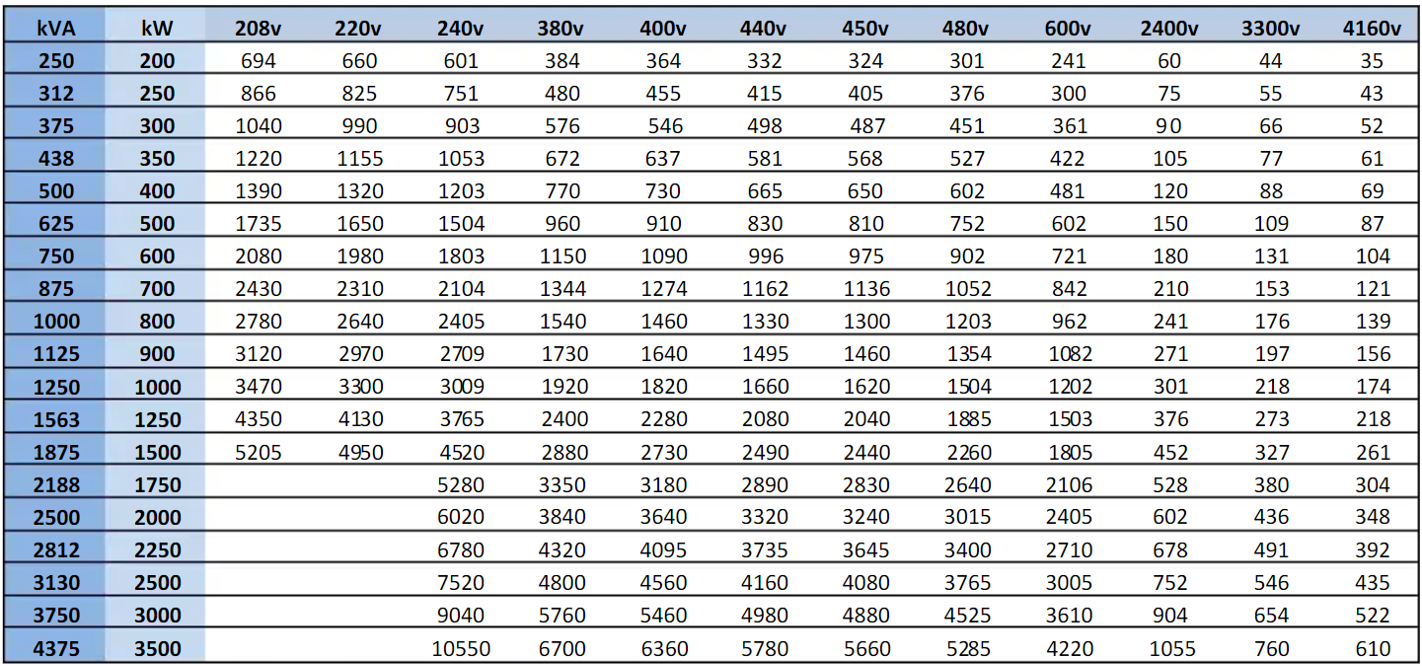
Midascom Network Sdn Bhd
This chart estimates the output amperage of a generator based on the operating power and voltage. Please note that this table is intended to be used as an estimate of how many amps a generator outputs during operation and is not an exact representation due to various factors that can increase or decrease this value.
Understanding Diesel Genset Specifications: kW, kVA and Power Factor

Diesel generators are used to provide backup power for buildings during blackouts and other emergencies. They are also used as permanent electricity sources in places with no grid coverage, such as remote mining facilities and oilfields. However, the technical specifications of diesel generators must be understood clearly before purchasing one.
When a diesel genset operates under the conditions for which it was designed, it has a higher efficiency and longer service life. However, it is important to understand the difference between kilowatts (kW), kilovolt-amperes (kVA) and power factor (PF):
Reactive power is not consumed, and instead it cycles between the power source and the load.
Diesel generator nameplates have rated values for kW, kVA and PF. However, the operating conditions are determined by the connected load, and not by the generator. To make sure your building has the right genset, the best recommendation is having the unit sized by professional electrical engineers.
What Limits the Output of a Generator? The maximum kilowatt output of a generator is determined by the diesel engine that drives it. As an example, consider an electric generator with 95% efficiency that is driven by a 1000-hp diesel engine:
On the other hand, the maximum kilovolt-amperes depend on the rated voltage and current of the generator. There are two ways in which the genset can be overloaded:
Keeping this in mind is very important, since a generator can be overloaded in terms of kilovolt-amperes, even if the load kilowatts are below the rated value.
Consider a generator with the following specifications: 1000 kW, 1250 kVA, 80% PF, 480 V and 1503 A. This generator can run at power factor above 80%, as long as the kW and kVA ratings are not exceeded.
To summarize, a diesel generator can exceed its rated power factor with no problem, as long as the kW and kVA stay below their rated values. Going below the rated PF is not recommended, since the generator operates less efficiently. Finally, exceeding either the kW rating or the kVA rating can damage the unit.
kVA / kW / Amp Conversion Chart
(80% Power Factor)


Chart updated on 8.1.2025
© Copyright 2025 | Midascom Network Sdn Bhd All Rights Reserved